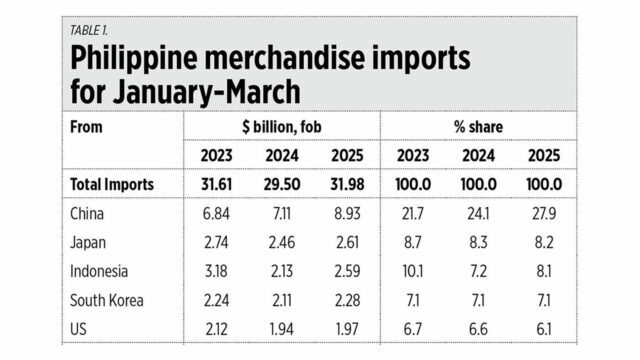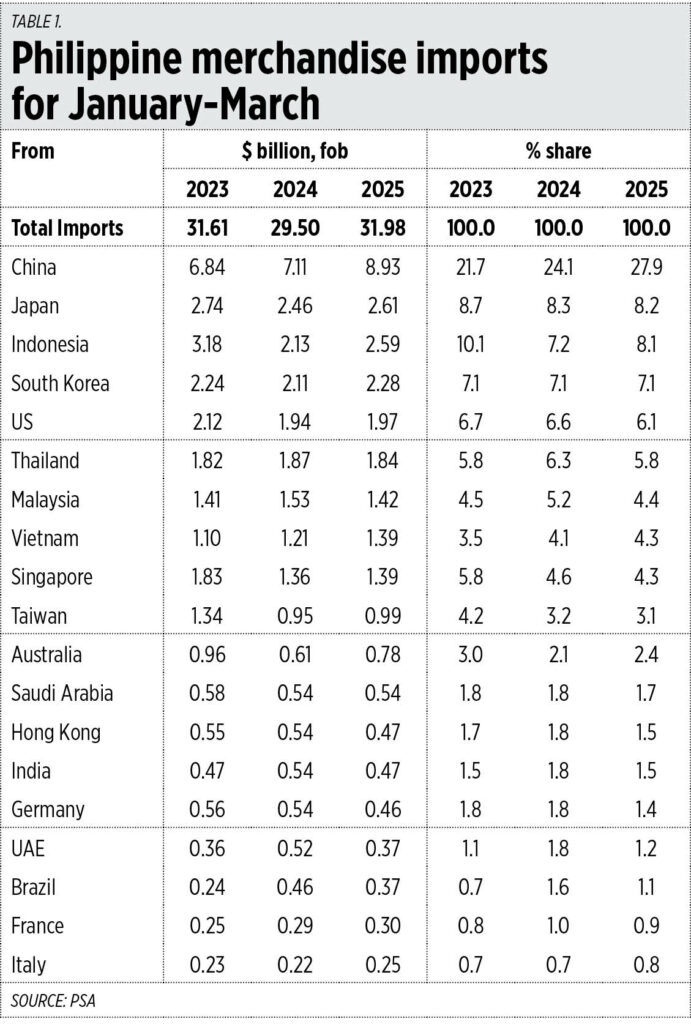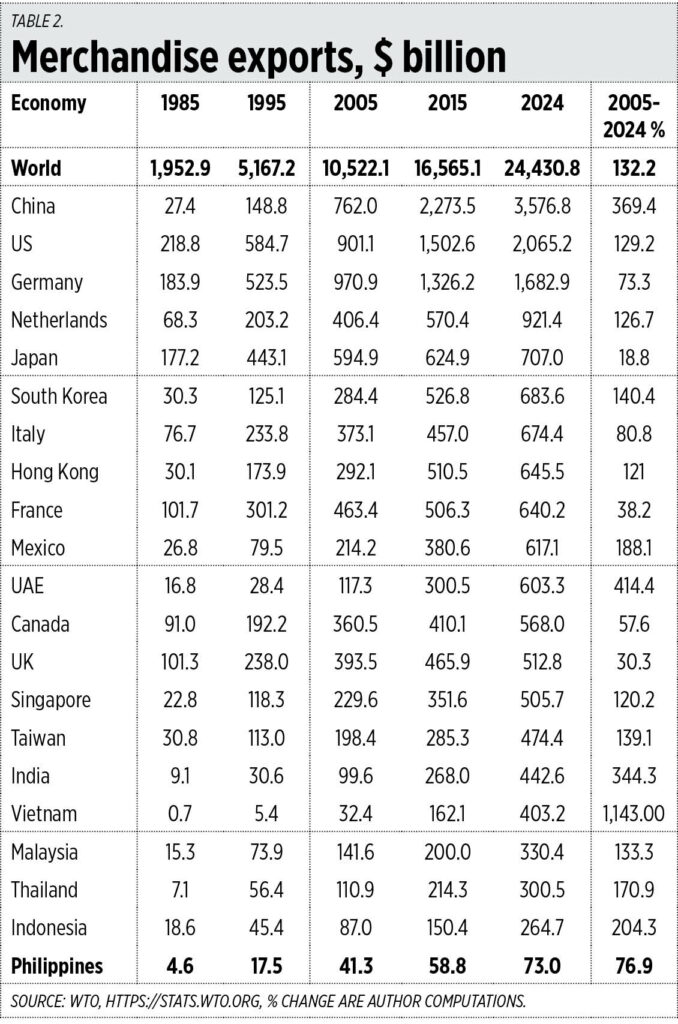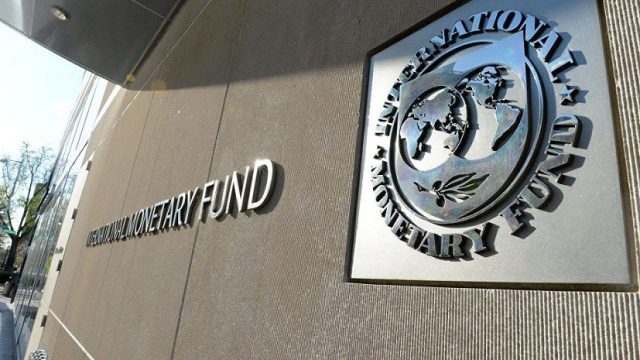Rethinking road pricing
When Electronic Road Pricing (ERP) was first introduced in Singapore in 1998, the naive journalist that I was believed it would be a suitable intervention for Metro Manila. Congestion in high-traffic areas could be minimized if motorists were made to pay to use certain streets during specific hours.
ERP essentially turned Singapore’s regular roads into tollways, with pricing determined by congestion and time of use, rather than distance traveled. Fees were higher during peak hours. The system used gantries equipped with sensors at entry and exit points and automatically collected fees via in-vehicle units.
ERP is similar to the electronic toll collection system we have locally — except that in ERP, fees are charged for using public roads during peak hours. If applied to EDSA, for example, motorists would pay a fee for using the road during high-traffic times. Outside these hours, EDSA would remain toll-free.
For the sake of discussion, let’s use a base fee of P100 for all motorists using EDSA between 6-9 a.m. and 5-9 p.m. If traffic volume spikes by 7 a.m., the fee could increase to P200 to P300. During pricing hours, fees would be dynamic — rising or falling depending on traffic levels.
The idea is to discourage motorists from using EDSA during rush hour and to encourage them to take alternative routes. The goal is to decongest EDSA, which is the main artery for public transport and commuters using the train system. By setting different rates for private vehicles and public utility vehicles, ERP can also benefit public transportation.
To an extent, I believed ERP was a logical solution for EDSA. After all, it has worked well in Singapore (since 1998) and London (since 2003). Singapore is now transitioning to a next-generation, satellite-based ERP system that uses GPS to charge motorists more precisely, rather than relying solely on gantry sensors, as we do with our current tollways.
Singapore’s ERP system features dynamic pricing that varies by time, location, and traffic volume. It is fully automated, with no toll booths or barriers. Enforcement is seamless. Fees are reviewed regularly and adjusted based on real-time congestion data.
Available information indicates that ERP in Singapore led to a 30% reduction in traffic volumes in congested areas. Peak-hour travel speeds in the city center improved from 20 km/h to 30 km/h. Air quality improved due to fewer idling vehicles, and public transport usage increased. ERP fees also help fund public transport infrastructure and road maintenance.
In London, the congestion charge system has been in place since 2003. It uses a flat-rate model: the equivalent of about P1,100 per day per vehicle entering central London between 7 a.m. and 6 p.m. on weekdays. Cameras and license plate recognition systems monitor entry points. Emergency vehicles, taxis, electric vehicles, and persons with disabilities enjoy exemptions or reduced rates.
London has reportedly seen a 15% to 20% drop in traffic volumes within the charging zone, reduced congestion delays, improved air quality, and a rise in cycling and walking — especially after the addition of bike lanes and pedestrian zones. Most of the collected fees are reinvested in London’s transport system.
Stockholm (since 2006) and Milan (since 2012) have also implemented time-of-use pricing on city roads. Stockholm uses time-based pricing, while Milan combines time- and pollution-based pricing. Both cities have reported improvements in traffic flow and public health outcomes.
In January, New York City began charging drivers a $9 fee to enter Manhattan below 60th Street during peak hours, with reduced rates at other times. Early data shows a 13% drop in vehicle entries, shorter travel times, more people using public transit, and increased pedestrian activity. In just three months, the program collected around $160 million earmarked for transit upgrades.
However, in March, the US federal government revoked its prior approval of the NYC program, claiming it imposed financial hardship on working-class commuters. The programs also lacked toll-free alternatives for the public. The Metropolitan Transportation Authority (MTA) sued to challenge the decision, and the case is now pending in court.
I consider ERP a form of usage-based taxation. It taxes motorists for using a specific road at a specific time. This “usage tax” is conceptually similar to the excise taxes that Filipinos pay on gasoline, cars, jewelry, tobacco, and alcohol. The revenue collected can be earmarked for public transport infrastructure and road upkeep.
In Singapore and London and Stockholm, driver education is arguably more advanced than in the Philippines. Public infrastructure is better. Their mass transit systems — trains, subways, buses — are far more efficient. These cities have shown that congestion pricing works because of three things: effective public transport, transparent use of funds, and well-informed drivers and commuters.
More importantly, road pricing in these places perhaps does not significantly impact the cost of living. Here, the typical argument is: “We already paid taxes to build the roads — why pay again to use them?” An ERP here would add to the existing burden of taxes and fees already imposed on car owners.
Moreover, I reckon cities like Singapore, London, and Stockholm do better than us at planning and implementation. Their systems are relatively reliable. Their citizens are more accustomed to following rules. And they are ahead of us in fighting corruption. Most importantly, they have efficient, reliable, and comfortable public transport systems.
These, I believe, are the essential ingredients that made ERP a “success” in Singapore, London, Stockholm, Milan, and New York. That said, I understand the criticism that ERP could be financially burdensome for the working class, especially if toll-free alternatives aren’t available.
In EDSA’s case, I suspect congestion pricing would simply divert traffic to other roads, without significantly decongesting EDSA itself. Worse, the additional costs from ERP could be passed on to commuters as higher fares (except for trains) and higher vehicle operating costs.
Clearly, our public transport system still has major gaps. Only when we have efficient, affordable, and comfortable light rail and bus rapid transit options — especially on EDSA — will people willingly leave their cars at home. That’s when road pricing can genuinely work, with or without ERP.
For policymakers considering ERP for EDSA or other major Metro Manila roads, this effort must be part of a broader traffic management plan. ERP cannot be a one-off fix. It must complement plans to upgrade public transportation, modernize roads, automate traffic management, and reform vehicle taxes and registration policies.
Without these supporting elements, ERP will simply become another burden — an additional cost for private motorists and public utility vehicle operators. Worse, it may not solve congestion at all but merely redistribute it to surrounding streets.
The government cannot keep building more roads. Land is finite, and only so much can be allocated to road infrastructure. Vehicle ownership will continue to rise. Road pricing is only effective if implemented alongside a comprehensive suite of solutions to manage traffic and transportation demand.
As I’ve argued in previous columns: an efficient, comfortable, and cost-effective mass transit system remains the most viable solution to congestion. Without it, road pricing cannot be implemented fairly — or effectively. It shouldn’t be considered at all. Leave the fees to the tollways.
Marvin Tort is a former managing editor of BusinessWorld, and a former chairman of the Philippine Press Council














